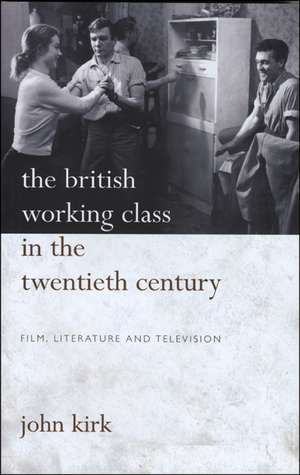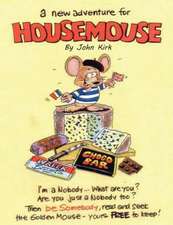The British Working Class in the Twentieth Century: Film, Literature and Television
Autor John Kirken Limba Engleză Paperback – 15 iun 2009
The Full Monty, Billy Elliot, and Brassed Off are among recent iconic working-class British films that have found huge worldwide success. Challenging suggestions that class is no longer relevant for literary or cultural analysis, this volume examines the lives and experiences of the working-class people portrayed in these films and in works of contemporary writing from authors like Jeanette Winterson and Pat Parker in order to assess how working-class lives have changed over the past century—and how these changes have been depicted and explored in a range of fictional and non-fictional texts and films.
Preț: 196.60 lei
Nou
Puncte Express: 295
Preț estimativ în valută:
37.62€ • 39.28$ • 31.06£
37.62€ • 39.28$ • 31.06£
Carte disponibilă
Livrare economică 25 martie-08 aprilie
Preluare comenzi: 021 569.72.76
Specificații
ISBN-13: 9780708321904
ISBN-10: 0708321909
Pagini: 224
Dimensiuni: 140 x 216 x 18 mm
Greutate: 0.29 kg
Ediția:2
Editura: University of Wales Press
Colecția University of Wales Press
ISBN-10: 0708321909
Pagini: 224
Dimensiuni: 140 x 216 x 18 mm
Greutate: 0.29 kg
Ediția:2
Editura: University of Wales Press
Colecția University of Wales Press
Notă biografică
John Kirk is a lecturer in cultural studies at the University of Huddersfield. He has published widely on representations of the working class in twentieth-century literature.
Cuprins
Acknowledgments
Introduction
1. ‘Unbending the springs of action’: from poverty to affluence in the narrating of class
2. Class, community and ‘structure of feeling’: a ‘sense of loss’ revisited in some working-class writing from the 1980s
3. Figuring the dispossessed: the negative topographies of class
4. Recovered perspectives: women and working-class writing
5. Mapping difference and identity: race, class and the politics of belonging
Conclusion
Notes
Bibliography
Index
Introduction
1. ‘Unbending the springs of action’: from poverty to affluence in the narrating of class
2. Class, community and ‘structure of feeling’: a ‘sense of loss’ revisited in some working-class writing from the 1980s
3. Figuring the dispossessed: the negative topographies of class
4. Recovered perspectives: women and working-class writing
5. Mapping difference and identity: race, class and the politics of belonging
Conclusion
Notes
Bibliography
Index





